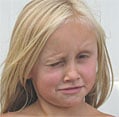How the Well-Baby Program Supports Healthy Child Development

Check out our blog for social-emotional learning articles, news, and more!
 Childhood aggression is escalating and at younger ages. The developmental progression of aggression in children suggests that the propensity for physical aggression and oppositional behaviour is at its highest at age two. Typically, as children develop, aggression begins to subside in each subsequent year and reaches a relatively low level prior to entering school (ages five to six). However, for some young children, levels of aggressive behaviour remain high and eventually result in the diagnosis of Oppositional Defiant Disorder (ODD) or early onset Conduct Disorder (CD). These labels refer to an aggregate of disruptive and antisocial behaviours that include high rates of oppositionality, defiance, and aggression. Studies indicate that between 7% and 20% of children meet the diagnostic criteria for ODD and/or CD and that these rates may be as high as 35% for children from low-income welfare-dependent families.
Childhood aggression is escalating and at younger ages. The developmental progression of aggression in children suggests that the propensity for physical aggression and oppositional behaviour is at its highest at age two. Typically, as children develop, aggression begins to subside in each subsequent year and reaches a relatively low level prior to entering school (ages five to six). However, for some young children, levels of aggressive behaviour remain high and eventually result in the diagnosis of Oppositional Defiant Disorder (ODD) or early onset Conduct Disorder (CD). These labels refer to an aggregate of disruptive and antisocial behaviours that include high rates of oppositionality, defiance, and aggression. Studies indicate that between 7% and 20% of children meet the diagnostic criteria for ODD and/or CD and that these rates may be as high as 35% for children from low-income welfare-dependent families.
Research on the prevention and treatment of aggression is vitally important because the emergence of early onset ODD/CD in preschool children is stable over time and appears to be the single most important behavioural risk factor predictive of antisocial behaviour for boys and girls in adolescence. In particular, physically aggressive behaviour in children as young as age three has repeatedly been found to predict the development of violent juvenile delinquency and drug abuse in adolescence, as well as depression and school dropout rates. There is some suggestion that, in the absence of intervention, early starter aggressive tendencies in children may crystallize around age eight. At this point in life, learning and behavioural problems may become less amenable to intervention and more likely to develop into a chronic disorder. Since treatment of aggression becomes increasingly difficult and more costly as children grow older, it seems both pragmatic and cost effective to offer treatment and prevention efforts during the toddler and preschool years. Unfortunately, recent projections suggest that less than 10% of school-aged children (and even fewer preschool-aged children) who need services for aggressive behaviour actually receive them; and less than half of this group receive empirically validated interventions.





